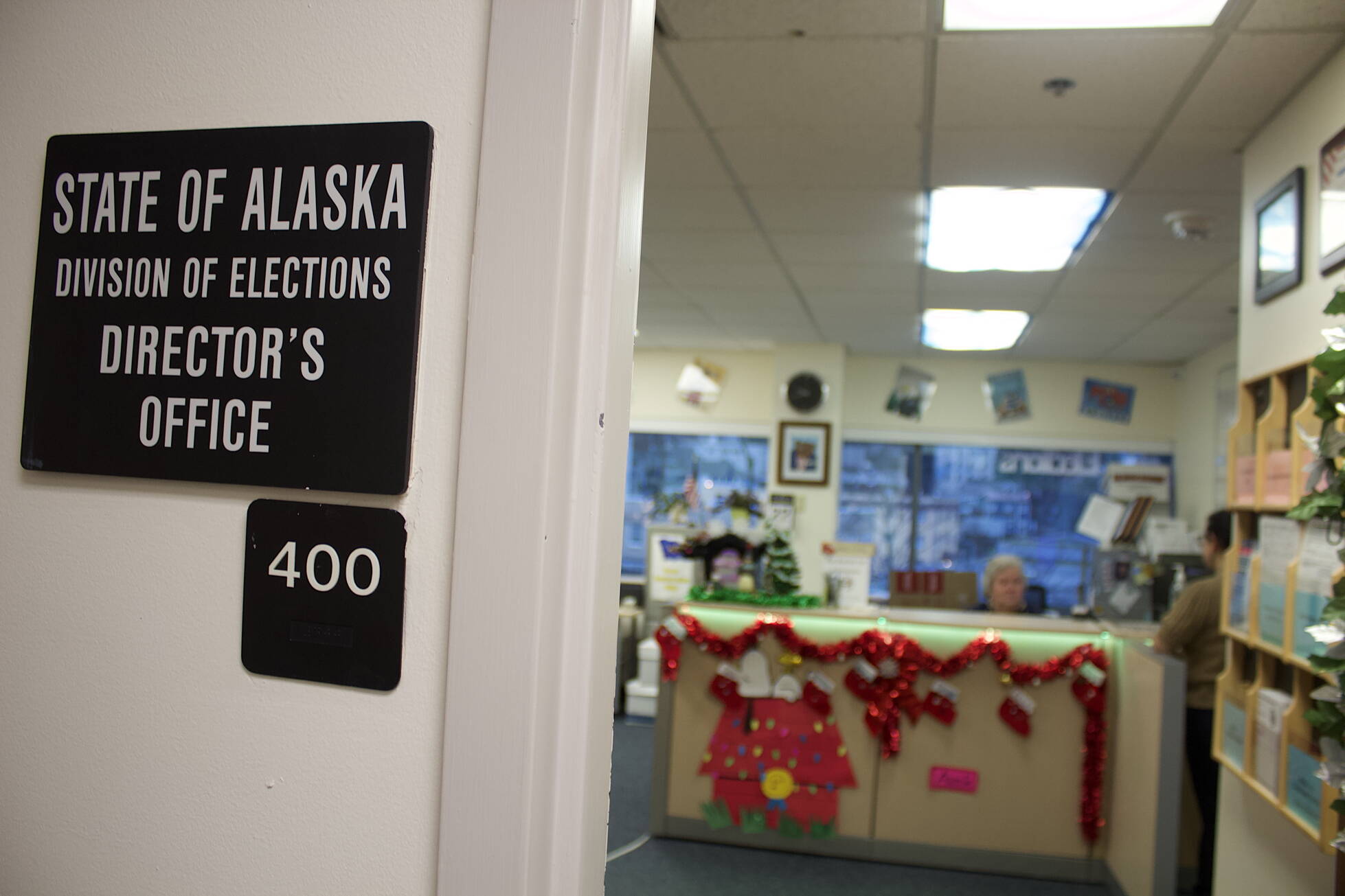This story has been updated with the uncounted ballot total as of early Wednesday morning.
It’s mathematically possible Sarah Palin will be Alaska’s next U.S. Representative and Kelly Tshibaka will be the newest U.S. Senator after the state’s first ranked choice tally in a general election occurs Wednesday afternoon. But the math will have to be very strange indeed.
Palin, just for starters, needs everyone who voted for fellow Republican Nick Begich III to rank her second, even though only half did during a special election in August to temporarily fill the U.S. house seat. Tshibaka, a Donald Trump-backed conservative, essentially has to hope a lot of Democrats like her more than moderate Republican incumbent Lisa Murkowski.
Instead, much of the suspense will likely be in a handful of races that will determine who controls both chambers of the Alaska State Legislature when the state Division of Elections conducts its so-called “instant runoffs” starting at 4 p.m. The process, which will be covered live by the Juneau Empire and broadcast on KTOO, will first report the final first-choice vote counts for all races and then conduct the ranked choice tallies for all races where no candidate has a majority.
The elections division will continue accepting absentee ballots mailed from outside the U.S until Wednesday and there are still ballots from U.S. addresses that had to be received by last Friday that remain to be counted, along with any remaining questioned and other outstanding ballots, said Tiffany Montemayor, a spokesperson for the division. As of 9 a.m. Wednesday there are 1,373 uncounted ballots in addition to the 264,994 already counted, with perhaps a relative additional handful that will be received when the final tallies begin.
The ranked choice process will begin with the two Congressional races (where both incumbents are expected to be short of a first-choice majority), then the governor’s race if necessary (although incumbent Mike Dunleavy, a Republican, appears as if he will barely exceed a majority), and finally the state legislative races where about 10 of the 59 seats may necessitate an instant runoff.
An indicator of how the process is likely to play out occurred during the special election Aug. 16 to fill the U.S. House seat after the death of Don Young this spring, the first-ever instance of Alaska using the ranked choice system voters approved last year.
Democrat Mary Peltola got about 40% of the first-choice vote, Palin 31% and Begich 28%. Begich was thus eliminated in the first “instant runoff,” and the votes of people ranking a second choice added to the other candidates. Palin got about 50% of second-choice votes, Peltola 29% and 21% made no second choice. The result was Peltola prevailed by a final margin of 51.5% to Palin’s 48.5%.
This time the circumstances are far more favorable to Peltola, who acquired both a multi-million campaign account and worldwide fame after becoming the first Democrat from Alaska in about 50 years elected to the U.S. House as well as the first Alaska Native in Congress. Palin and Begich, whose vicious attacks on each other and denouncement of ranked choice voting apparently resulted in relatively low second-choice support for each other, both urged supporters to “rank the red” during the general election campaign — but Palin will still fall short even if she gets 100% of Begich’s votes if the results to date hold up.
The most recent tally of first-choice votes last Friday, comprised of 264,994 ballots representing about 44% of registered voters, shows with Peltola at 48.68%, Palin 25.79% and Begich 23.38%. For Palin to prevail she will also need essentially all of the 1.73% of first choice votes cast for Libertarian Chris Bye to be awarded to her during the runoff process.
There’s more suspense, but not a lot more, in the U.S. Senate race where Tshibaka likely needs one of the biggest cross-party feats in state history to prevail — after a campaign where she constantly attacked Democrats (along with moderates such as Murkowski) as misguided and corrupt.
Murkowski is slightly ahead in the current count at 43.3% to Tshibaka’s 42.7%, while Democrat Pat Chesbro has 10.4% and Republican Buzz Kelley 2.9%. Kelley suspended his campaign shortly after the August primary and endorsed Tshibaka, meaning she’s likely to get the dominant share of his second-choice voters, but she would still have to hope to get nearly half of Chesbro’s second-choice votes as well.
Pollster Ivan Moore of Alaska Survey Research, predicted after the latest results Peltola will prevail over Palin by 55.6%-44.4% in the final U.S. House tally and Murkowski over Tshibaka by 53%-47%.
The governor’s race is unlikely to see a runoff unless the remaining votes tilt heavily against Dunleavy. As of Friday he had 50.3% of the vote, ahead of Democrat Les Gara, at 24.2%, independent former Gov. Bill Walker at 20.7% and Republican Charlie Pierce at 4.5%.
In the Legislature, the key race in the state Senate appears to be the South Anchorage district, where Republican former Senate President Cathy Giessel has 33.6%, Republican Sen. Roger Holland has 33.1% and Democrat Roselynn Cacy is at 32.9%. The outcome of that race will likely determine if a bipartisan ruling coalition rather than the Republican leadership of recent years is established.
There are also three state House races in the Anchorage and Matanuska-Susitna Valley areas considered toss-ups that will affect the leadership arrangement of that body.
But even after Wednesday’s instant runoff, the results won’t be quite final. The results are unofficial until the elections division certifies them, which is scheduled Nov. 29, and recounts can be requested for up to five days and challenges for 10 days after certification.
• Contact Mark Sabbatini at mark.sabbatini@juneauempire.com

